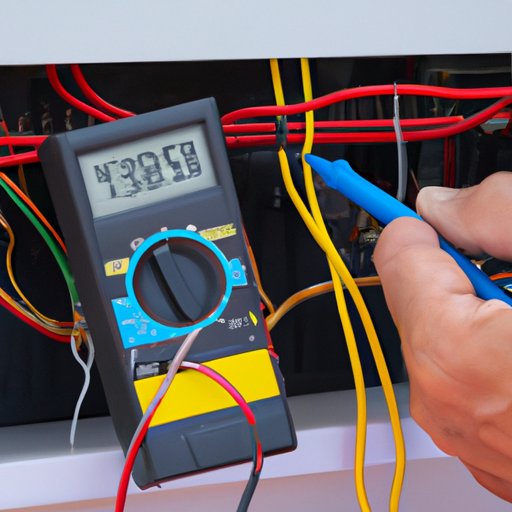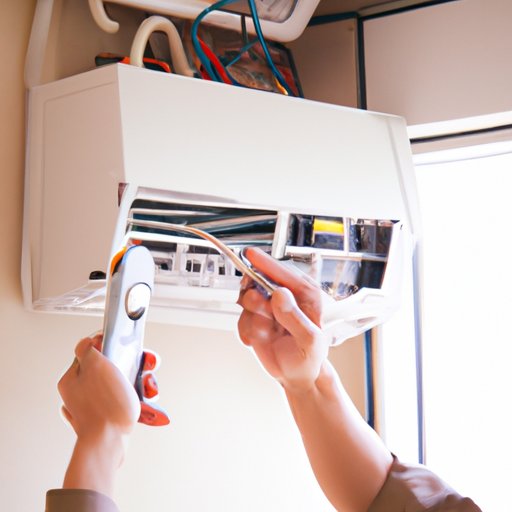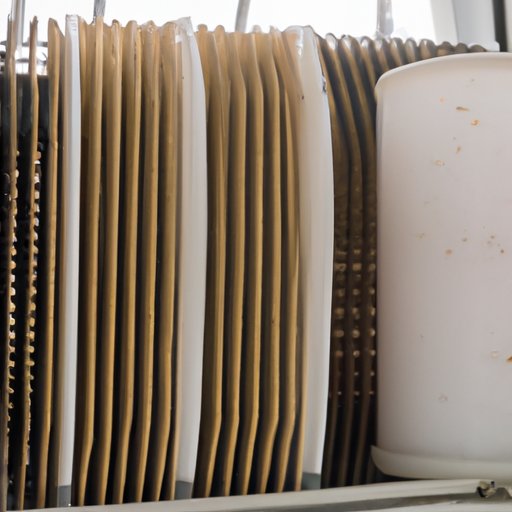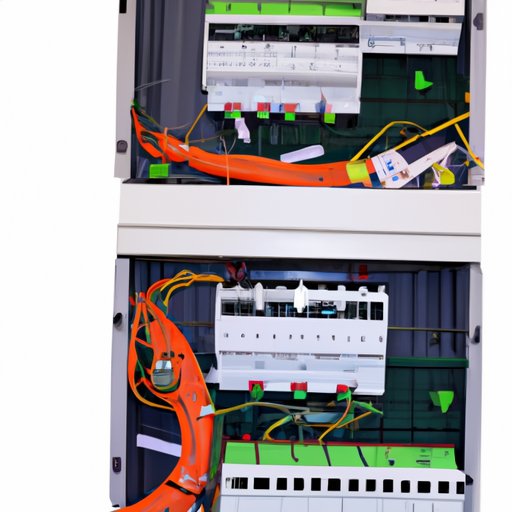Introduction
Portable air conditioners (ACs) are a great way to beat the summer heat without having to install a permanent window AC unit. However, one of the common issues that come with using a portable AC is that it can sometimes trip the breaker. This can be a frustrating experience, and it’s important to know how to prevent it from happening. This article will explore how to stop your portable AC from tripping the breaker.

Check the Amperage of the Portable AC and Make Sure it is Compatible with the Electrical Circuit
The first step in preventing your portable AC from tripping the breaker is to check the amperage. Amperage is the measure of electric current in an electrical circuit. It is usually expressed in amps (A). The higher the number, the more power the appliance needs. To ensure that your portable AC does not overload the circuit, you need to make sure that the amperage of the AC is compatible with the electrical circuit.
To check the amperage of your portable AC, look at the label on the back of the unit or consult the user manual. Once you have the amperage, you can then determine if it is compatible with the electrical circuit. Most home circuits are rated for 15-20 amps, so if your portable AC has an amperage rating above this, you may need to upgrade your circuit.
Once you’ve determined that the amperage of your portable AC is compatible with the electrical circuit, you should also make sure that the AC isn’t plugged into an extension cord. Extension cords are not designed to handle the load of an AC unit, and they can easily overload the circuit, causing it to trip.

Install a Dedicated Circuit for the Portable AC
Another way to prevent your portable AC from tripping the breaker is to install a dedicated circuit for the AC. A dedicated circuit is a circuit that is specifically for one appliance or device. In this case, it would be a circuit dedicated to the portable AC. Having a dedicated circuit helps to ensure that the AC does not overload the circuit, as it is the only appliance drawing power from it.
Installing a dedicated circuit for your portable AC can be done by a qualified electrician. The electrician will need to run new wiring to the area where the AC will be located and install a new outlet specifically for the AC. This process can be costly, but it is worth it in the long run as it will help to ensure that your AC runs safely and efficiently.
Ensure Proper Ventilation for the Portable AC
Proper ventilation is essential for any portable AC. Without proper ventilation, the unit will be unable to dissipate the heat it is producing, which can lead to overheating and eventually, tripping the breaker. To ensure proper ventilation, make sure that the unit is placed in an open area away from walls and furniture. Additionally, make sure that there is plenty of airflow around the unit, as blocked vents can lead to overheating.
You should also make sure that the exhaust hose is securely connected to the unit and that it is properly vented outside. If the hose is not secured properly, hot air can escape into the room, leading to overheating. Additionally, make sure that the exhaust hose is not kinked or blocked, as this can also lead to overheating.

Clean Filters Regularly to Increase the Efficiency of the Unit
Filters are an important part of any air conditioning system, including portable ACs. They help to remove dust, pollen, and other airborne particles from the air, making it healthier and more comfortable to breathe. However, over time, these filters can become clogged, reducing the efficiency of the unit. To prevent this, it is important to clean the filters regularly.
Cleaning the filters can be done by either vacuuming them or washing them in warm water. Vacuuming is the quickest and easiest method, but it is not as effective as washing. Washing the filters can help to remove any stubborn dirt or debris that has built up over time. Whichever method you choose, make sure to let the filters dry completely before reinstalling them in the unit.
Replace Old or Faulty Wiring in the Unit
If your portable AC is still tripping the breaker after you’ve followed the steps above, it could be due to old or faulty wiring. Over time, wires can become worn out or damaged, causing them to short circuit and trip the breaker. To prevent this, it is important to inspect the wiring in the unit and replace any wires that are old or damaged.
Replacing the wiring in your portable AC can be done by a qualified electrician. The electrician will need to inspect the wiring and replace any wires that are worn out or damaged. This process can be costly, but it is worth it in the long run as it will help to ensure that your AC runs safely and efficiently.
Conclusion
In conclusion, there are several ways to prevent your portable AC from tripping the breaker. These include checking the amperage, installing a dedicated circuit, ensuring proper ventilation, cleaning filters regularly, and replacing old or faulty wiring in the unit. By following these steps, you can help to ensure that your AC runs safely and efficiently.
Tips for Preventing Portable AC from Tripping Breaker:
- Check the amperage of the unit and make sure it is compatible with the electrical circuit.
- Install a dedicated circuit for the AC.
- Ensure proper ventilation for the unit.
- Clean filters regularly to increase the efficiency of the unit.
- Replace old or faulty wiring in the unit.
(Note: Is this article not meeting your expectations? Do you have knowledge or insights to share? Unlock new opportunities and expand your reach by joining our authors team. Click Registration to join us and share your expertise with our readers.)
